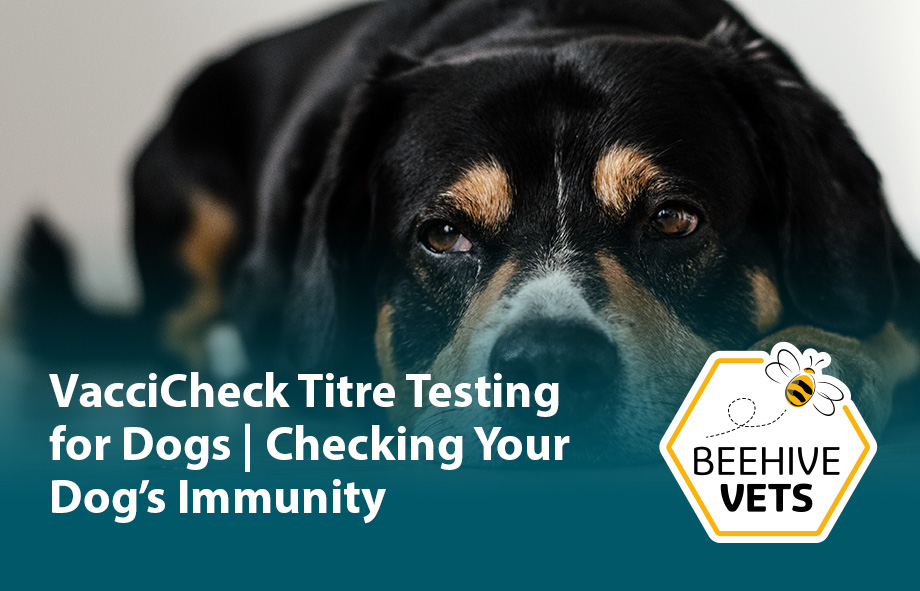What do we vaccinate our dog’s against and why?
Infectious Canine Hepatitis
Infectious Canine Hepatitis is a disease that is caused by canine adenovirus (CAV). Transmission occurs by direct contact with infected dogs or virus contaminated areas. The first sign is coughing that may progress to pneumonia. Later, when the virus enters the bloodstream, liver, kidney and/or other body organs it may cause clinical signs such as: “blue eye”, vomiting, diarrhoea, increased thirst and in some cases seizures. Puppies have the highest mortality rate.


Canine Parvo Virus
Canine Parvovirus (CPV) infection can occur following exposure to contaminated areas; the virus can remain active in soil for over a year. Clinical signs of CPV include lethargy, depression, inappetence, fever, vomiting and diarrhoea (sometimes with blood). Fatalities are common in puppies.
Canine Distemper Virus
Canine Distemper Virus is transmitted from dog-to-dog by the aerosol route. Illness is characterised by intermittent fever, depression, discharge from the eyes and nose and loss of appetite. Respiratory and/or gastrointestinal signs may follow. In dogs that survive the acute stages of the disease, many (but not all) will develop central nervous system signs, including optic neuritis and retinal lesions as well as difficulty walking, weakness and seizures.


Leptospirosis
Leptospirosis is a serious bacterial infection affecting the gastrointestinal tract or liver and kidneys of young dogs. Until recently the disease was uncommon because of an effective vaccination programme in the UK. However, we have recently seen occurrences of infections caused by new strains of leptospira not covered by the old vaccine. The signs of disease are often dramatic and sudden in onset. In some cases there is vomiting and bloody diarrhoea, in others liver damage is severe and jaundice develops. Sometimes the kidneys are affected causing acute renal failure. Animals may die quickly before signs of disease have had time to develop. Leptospirosis is zoonotic (can be passed to humans). If your veterinarian diagnoses leptospirosis in your dog, you should seek advice from your GP.
What is titre testing?
Infectious Canine Hepatitis (ICH), Canine Parvovirus (CPV) and Canine Distemper Virus (CDV) are recognized as important causes of illness and death in dogs. Puppies are most susceptible to infectious canine hepatitis, Canine parvo virus and Canine Distemper Virus, especially after weaning when protective maternally derived antibody (MDA) levels decrease. In many countries, vaccination programs have significantly curtailed, but not eliminated the incidence of these diseases. Thus, ICH, CPV and CDV continue to be of great clinical concern among veterinarians worldwide and still present a diagnostic challenge.
VacciCheck
VacciCheck is a rapid and affordable option to check your dog’s titre levels for the Distemper, Hepatitis and Parvo virus only. It provides easy to interpret results which determine whether the animal has a protective level of immunity at the time of sampling or whether they need revaccination.
There are several ways VacciCheck can be beneficial:
- Following vaccination to assess protective antibody levels
- To determine if a booster vaccination is required
- To ascertain existing protection for a dog with a lapsed vaccination
- To test stray/abandoned animals with no clinical history
- To test animals on immunosuppressive treatment
- Can be used as part of an annual health check program
- Can help minimise the risk of adverse reaction to a vaccine
- Rapid turnaround of results
Unfortunately, there is no titre testing available for any of the strains of Leptospirosis, so we at Beehive Vets would always recommend an annual health check and leptospirosis vaccination with a veterinary surgeon.



